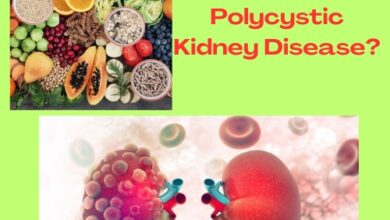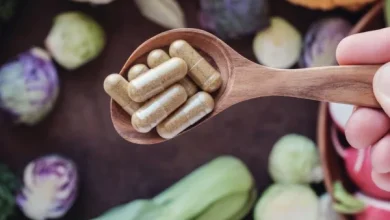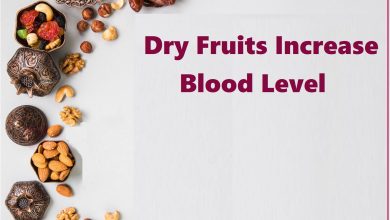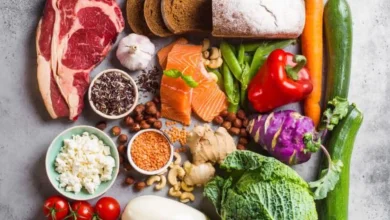7 Unexpected Risks Of Eating Avocado (Especially If You Have These Medical Conditions)

Undoubtedly, one of the most well-liked fruits available is the avocado. It’s highly flexible and much more than just a nutritional powerhouse. It is delicious on its own, in salads diced up, tossed with salt and pepper, and, of course, blended into guacamole. Not to mention that it’s still quite popular on social media years after avocado toast became popular and swept the nation.
Nutritionists regard avocados with great respect, despite their frequent promotion as a superfood. In an explanation to Eat This, Not That!, Tom Smurr, RD “Amazingly adaptable, avocados are a fantastic source of fiber, potassium, and natural fat. This makes it an incredible tool for maintaining regularity, feeling full for longer, and regaining lost electrolytes.”
It could come as a huge shock to hear that not everyone should consume the creamy cuisine, considering all of these accolades. Yes, there are serious health dangers associated with the fruit for certain people with particular diseases. Avocados aren’t “dangerous” per such, but they can interfere with several drugs and potentially change significant lab results. These are a few health hazards associated with avocado eating.
Eating avocado could cause allergies if you have latex-fruit syndrome
Latex-fruit syndrome is a disorder that causes an allergic reaction when a person who is allergic to latex consumes foods that contain a specific type of protein derived from the sap of rubber plants. Unfortunately, avocado is one of those foods that not everyone enjoys eating. About 30 to 50 percent of people with a typical latex allergy to things like some medical gloves and dental goods may go on to develop the condition, according to the Asthma and Allergy Foundation of America.
Those who are allergic to avocados may also suffer symptoms from eating bananas, peaches, tomatoes, kiwis, and other specific fruits and vegetables. According to Penn Medicine Becker ENT & Allergy, common symptoms of an issue include skin discomfort, swelling, and stomach ache, which are hallmarks of classic allergic reactions. Rarely, certain people may experience anaphylactic shock.
See your doctor or an allergist for an assessment if you believe you may have a latex allergy and are exhibiting signs of latex-fruit syndrome. A test that entails pricking your skin with a tiny amount of the latex protein just below the surface can be conducted by them. This is typically done on the forearm or back. You might have a latex allergy if your skin becomes bumpy or reacts in any way.
Avocados could interact with blood thinners for atrial fibrillation
Blood thinners are usually administered to those who have atrial fibrillation, a clotting condition, or who are otherwise at risk of creating a blood clot in order to prevent it from happening. These are potentially life-saving drugs that can stop heart attacks, strokes, and pulmonary emboli. Blood thinners function by lessening the body’s need on vitamin K, which reduces the clotting of blood.
Blood thinners come in a variety of forms, however foods high in vitamin K have been shown to interfere with warfarin. Furthermore, according to Healthline, a single 100-gram serving of avocado provides 18% of the daily intake for vitamin K, even though avocados are not the fruit that is highest in this vitamin. Because they could negate the benefits of the drug and possibly make it less effective, your doctor may advise you to restrict the amount of vitamin K-rich foods you eat.
Remember that each person has unique needs. Alternatively, your doctor may advise you to take a daily supplement of vitamin K rather than abstaining from avocado and related foods entirely. However, abrupt dietary adjustments may cause the medication to not work properly. If you use warfarin on a daily basis and consume avocados, it’s advisable to talk to your doctor to make sure your dosage is adjusted appropriately to prevent any potential problems.
Potassium in avocados could be harmful to people with kidney disease
Individuals who have renal disease in its early stages don’t necessarily need to check how much potassium they eat because their organs can still handle the mineral effectively at this stage. However, the kidneys gradually lose their capacity to filter potassium as the disease advances to later stages. This may lead to a severe imbalance in the body known as hyperkalemia, where it builds up in the bloodstream. Patients with late-stage kidney disease are “up to three times more likely” to develop the disorder, even though the condition itself is not very prevalent (Cleveland Clinic).
A third of an avocado has 250 mg of potassium, thus patients who are controlling their intake should avoid eating too much of the fruit (as well as other foods high in potassium). In the early stages of hyperkalemia, symptoms are rarely present, however some patients may experience nausea or diarrhoea, which may or may not be related to higher potassium intake in the diet. When elevated levels are identified, usually by blood testing, a physician may recommend a potassium binder or a diuretic. But a diuretic might not work if a patient’s kidneys have stopped making pee. Although they aid in the patient’s potassium excretion from the body, binders might have painful side effects in the abdomen.
It’s advisable to stay away from avocado and other foods high in potassium completely to be safe. You may make informed decisions that will improve your long-term health and prognosis with the assistance of a renal dietitian.
People with digestion problems could have trouble with avocado
Despite their high nutrient content, avocados can be dangerous for those on a low-FODMAP diet. Short-chain carbohydrates known as FODMAPs (fermentable oligosaccharides, disaccharides, monosaccharides, and polyols) might be challenging for certain individuals to digest. This may result in symptoms such as diarrhea, constipation, bloating, gas, and upset stomach in general.
Regretfully, depending on their size, avocados may contain a sizable amount of FODMAPs. Monash University, which maintains reliable data through regular investigations and provides a FODMAP ranking system, reports that testing of the fruit recently indicated the presence of a sugar polyol known as perseitol. Perseitol can induce gas, bloating, and other digestive problems, just like other sugar polyols.
Nevertheless, some individuals following a low-FODMAP diet could still be able to include avocado. According to research from Monash University, an avocado’s serving size may have an impact on a person’s response even though it is still scored highly on the FODMAP scale. If you’re not sure, you may want to try consuming a small bit and seeing how it feels on your stomach as an experiment. All that could stand in the way of keeping your stomach content and still enjoying the fruit (in moderation) is striking the correct balance.
Tyramine in avocado could be a trigger for migraines
A migraine has the power to completely derail you. Often, the only thing you can do is lie down and wait for it to pass. If you’re having a severe migraine attack, you might have to deal with symptoms that last up to three days. This is the reason that a large number of people seek medical attention for their migraines because over-the-counter medicines and other conventional treatments are ineffective. Changing a few aspects of your lifestyle, starting with your nutrition, might also be beneficial.
Although there isn’t a single diet that suits everyone, avocados seem to be a major trigger for some people. Tyramine, an amino acid in the fruit that can cause pain, is the offender. In addition to a variety of other foods, this group also includes plums, papayas, raisins, passion fruit, and red plums (University of Hampshire Health & Wellness). “There are varying degrees of evidence for specific foods to be triggers, but there may also be a wide range of individual responses,” says Noah Rosen, MD, in an interview with Everyday Health. Having said that, he links avocados’ propensity to induce migraines to their high tyramine content.
It could be beneficial to maintain a food journal if you believe avocado to be a trigger. Monitor your consumption and the effects it has on you. This can assist you in recognizing distinct patterns associated with the fruit (as well as any other items you may think are responsible).
GERD may be aggravated by the fat in avocado
It’s sad but true: your uncomfortable acid reflux attack might have been caused by an avocado. With so many health benefits, avocados are unquestionably a superfood. However, if you suffer from gastroesophageal reflux disease, or GERD, they may be quite difficult on the stomach. Stomach acid produced by people with GERD irritates the lining of the esophagus over time, resulting in typical symptoms such as heartburn, nausea, backwash (a characteristic sour taste at the back of the throat), and a lump in the neck or clearing sensation in the throat.
If you indulge in an avocado, you could put yourself at risk for discomfort even if you stay away from the typical greasy triggers like pizza and fried foods. Assistant Chief Scientist Dr. Colin Cable of the Royal Pharmaceutical Society tells Good Housekeeping, “Foods high in fat, like greasy burgers, or foods deemed healthy like avocados or nuts, sit in the stomach longer and produce more acid because they take longer to digest. Heartburn is more prone to occur when there is increased acid production.”
The best course of action is to completely avoid avocados. However, to assist you better manage your symptoms, if you do inadvertently ingest it or just have an irresistible need, you should follow up with an over-the-counter or prescription drug.
Patients who take some hypertension medications shouldn’t eat avocado
For the treatment of excessive blood pressure and other heart-related conditions, doctors prescribe beta-blockers and ACE inhibitors. Although both of these drugs have the potential to greatly improve heart health, they can also raise potassium levels. This happens as a result of their decreasing the kidneys’ capacity to effectively eliminate potassium, which leads to its build-up in the blood.
Because avocados are high in potassium, people on beta-blockers or ACE inhibitors should limit their avocado intake. According to Bethanne Brown, a professor of pharmacy practice at the James L. Winkle College of Pharmacy at the University of Cincinnati, this may make hyperkalemia more likely to occur (via AARP). Serious health effects, such as muscular atrophy, irregular pulse, and, in more severe situations, cardiac collapse, could result from these elevated levels.
It’s crucial to limit your consumption of avocados and other foods high in potassium due to this interaction. You don’t have to completely give up on fruit, but it is important to watch how much you eat. Since hyperkalemia doesn’t always have symptoms, controlling your food and speaking with a doctor or nutritionist can help you avoid hyperkalemia by ensuring that the decisions you make are healthy ones.




